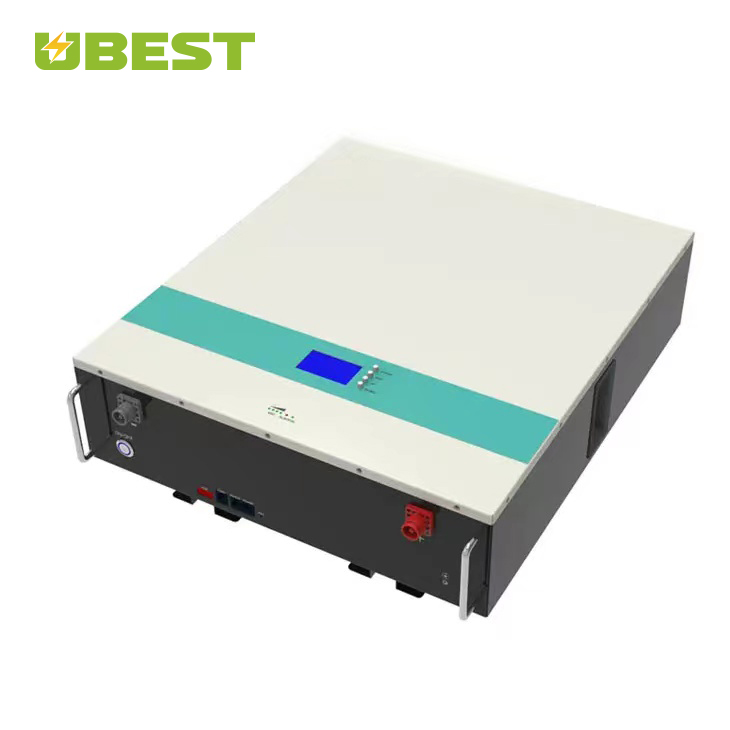Views: 200 Author: Ubest Publish Time: 2023-07-19 Origin: Site









When weighing your solar battery options, consider things like how long the solar power lithium battery will last and how much power it can provide. Learn about all of the criteria you should use to compare your home energy storage system options, as well as the various types of solar battery packs, in the sections below.
You'll come across a lot of complicated product specifications as you consider your solar-plus-storage options. The capacity and power ratings of the battery, depth of discharge (DoD), round-trip efficiency, warranty, and manufacturer are the most important to consider during your evaluation.
The total amount of electricity that a solar battery can store, measured in kilowatt-hours (kWh), is referred to as capacity. Most home solar batteries are "stackable," which means you can add multiple rechargeable batteries to your solar-plus-storage system to increase capacity.
While capacity indicates the size of a battery, it does not indicate how much electricity it can provide at any given time. You must also consider the battery's power rating to get the full picture. A power rating in the context of solar batteries is the amount of electricity that a battery can deliver at one time. Kilowatts (kW) are the units of measurement.
A battery that has a high capacity but a low power rating would last a long time while only producing a small amount of electricity (enough to power a few essential appliances). A battery with a small capacity and a high power rating could, but only briefly, power your entire house.
Due to their chemical makeup, the majority of solar batteries need to maintain some charge at all times. A battery's useful life will be drastically reduced if you use all of its charges.
The percentage of a battery's capacity that has been used is referred to as the depth of discharge (DoD). For optimum performance, the majority of manufacturers will specify a maximum DoD. For instance, you shouldn't use more than 9 kWh of a 10 kWh battery before recharging it if the DoD is 90%. Generally speaking, you can use more of your battery's capacity when the DoD is higher.
The amount of energy that can be used as a proportion of the energy required to store it is known as a battery's round-trip efficiency. For example, if you feed five kWh of electricity into your battery and can only get four kWh of useful electricity back, the battery has 80 percent round-trip efficiency (4 kWh / 5 kWh = 80%). Generally speaking, a higher round-trip efficiency means you will get more economic value out of your battery.
For the majority of residential energy storage applications, your battery will "cycle" (charge and drain) daily. The battery's ability to hold a charge will gradually decline as you use it more. In this sense, solar batteries are analogous to the battery in your cell phone: you charge your phone each night so that you can use it during the day, and as your phone gets older, you'll notice that the battery doesn't hold as much charge as it did when it was new. A battery, for example, might be warranted for 5,000 cycles or 10 years at 70% of its original capacity. This guarantees that the battery will have lost no more than 30% of its initial capacity to store energy at the end of the warranty.
There will be a warranty on your solar battery that promises a specific number of cycles and/or years of useful life. Because batteries naturally lose some of their performance over time, most manufacturers also promise that the battery will retain some of its capacity during the warranty period. The short answer to the question "How long will my solar battery last?" is that it depends on the brand of battery you purchase and the rate of capacity loss.
From automakers to tech startups, a wide range of businesses are creating and manufacturing solar battery products. Although a major automaker entering the energy storage market probably has a longer track record of producing products, it might not provide the most cutting-edge technology. A tech startup, on the other hand, may have cutting-edge, high-performing technology, but less of a track record to vouch for the battery's durability.
Your priorities will determine whether you select a battery made by a cutting-edge startup or a seasoned manufacturer. You can get more insight as you choose a product by analyzing the warranties that come with each one.